Table of Contents
The kitchen is more than just a place where meals are cooked—it’s where families gather, where memories are made, and where the morning coffee brews.
As the heart and soul of most homes, it’s no surprise that kitchen renovations are among the most popular home improvement projects.
However, the burning question remains: should you venture into the realms of DIY or lean on the expertise of professionals? Let’s dive deep into this debate.
Context
Before we compare DIY vs. professionals, such as kitchen renovations Hamilton, ON we must understand the context of a kitchen renovation.
It’s not just about picking colors or replacing cabinets; it’s about functionality, flow, and maximizing space, all while balancing a budget.
Budget

DIY:
- Savings Galore: The most significant advantage of DIY is the potential cost-saving. By eliminating labor costs, your budget might stretch further.
- Hidden Costs: However, the DIY route can come with unforeseen expenses. There’s the possibility of errors, and costs can spiral if you’ve miscalculated your materials.
Professional:
- Clear Estimates: Most professionals provide a detailed quote, giving you a clear financial roadmap.
- Bulk Discounts: Professionals often have industry connections, granting them discounts on high-quality materials.
Time and Scheduling
DIY:
- At Your Pace: The beauty of DIY is the flexibility. You can work on your renovation during weekends or evenings without strict timelines.
- Potential Delays: However, you might encounter delays due to inexperience or unexpected challenges.
Professional:
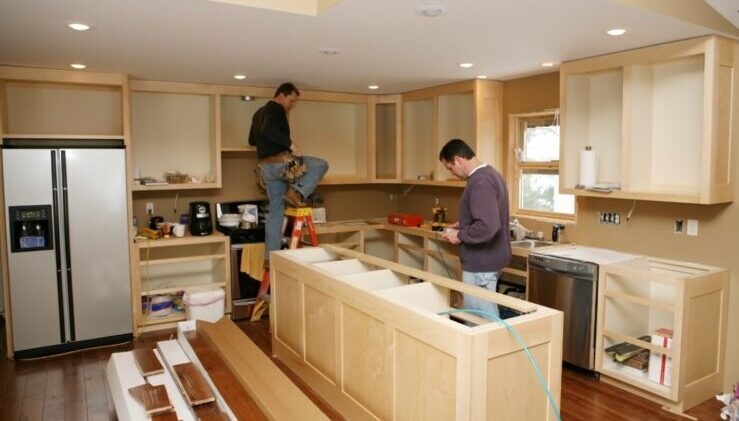
- Strict Timelines: Professionals work with a schedule, ensuring the project is on track and completed within the stipulated timeframe.
- Efficiency: Their experience can mean faster problem-solving, which often translates to quicker project completion.
Skills and Craftsmanship
DIY:
- Learning Experience: For many, the DIY route is a journey, a chance to learn new skills and techniques.
- Mistakes Can Happen: It’s essential to acknowledge that without proper know-how, errors can occur, potentially affecting the project’s overall quality.
Professional:
- Years of Experience: A reputable contractor has years, if not decades, of experience, ensuring a high-quality finish.
- Guaranteed Results: Many professionals offer warranties on their work, adding an extra layer of reassurance.
Customization
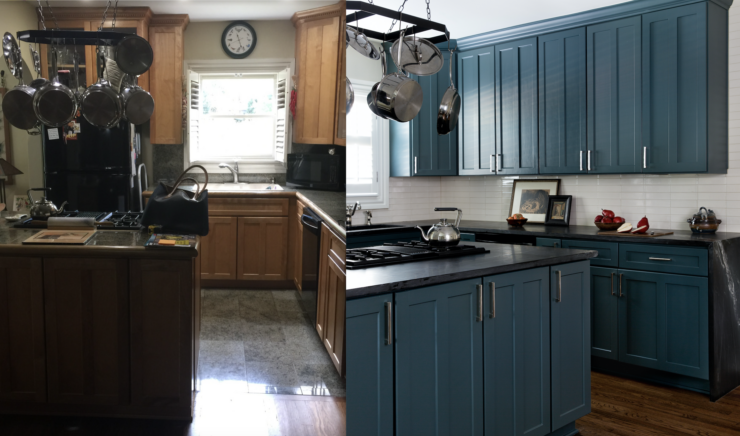
DIY:
- Personal Touch: DIY allows for a level of personalization that’s hard to match. Every corner, every color, every fixture can be a reflection of your style.
- Decision Overload: With endless choices and design possibilities, decision paralysis is a real concern.
Professional:
- Guided Choices: With their vast experience, professionals can provide recommendations tailored to your space and preferences.
- Streamlined Designs: They often have tried-and-true designs that are both functional and aesthetically pleasing.
Equipment and Tools
DIY:
- Initial Investments: If you don’t have the necessary tools, you’ll need to purchase or rent them, adding to your budget.
- Storage Post-Renovation: Post-renovation, you might need to find storage solutions for these tools.
Professional:
- Equipped for the Job: Professionals come with their tools, ensuring they’re best suited for the specific tasks at hand.
- Advanced Techniques: Professionals may utilize advanced machinery or techniques not readily available to the average homeowner.
Safety and Protocols
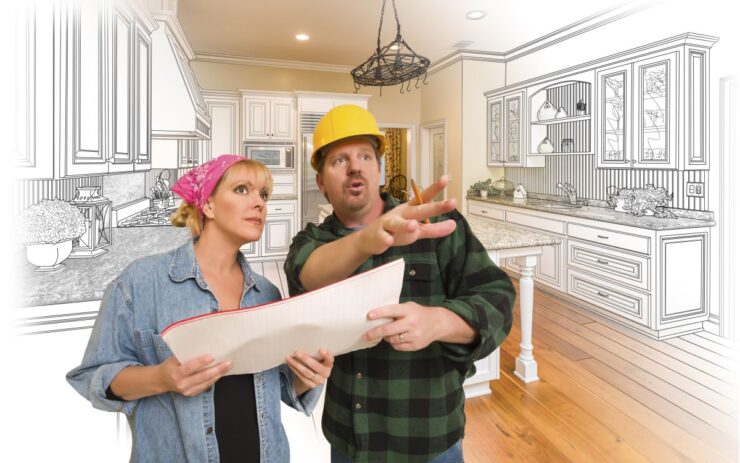
DIY:
- Safety First: Without adequate training, you might overlook essential safety protocols, leading to potential injuries.
- Potential Damages: Improper installations can result in future damages, like water leaks or electrical issues.
Professional:
- Adherence to Codes: Professionals ensure that all installations meet local building codes and standards.
- Liability Insurance: In the rare event of damages, professionals are typically insured, safeguarding you against extra expenses.
Aftercare and Cleanup
DIY:
- Hands-On Cleanup: The responsibility of cleaning up post-renovation falls on you, adding to your task list.
- Waste Management: Depending on the project’s scale, you might need to manage waste disposal, which can be a challenge in some areas.
Professional:
- Turnkey Solution: Many professionals offer end-to-end services, leaving your kitchen in a ready-to-use state.
- Hassle-Free Process: From debris removal to a final cleaning sweep, professionals handle it all.
FAQs
What is the average duration for a complete kitchen renovation?
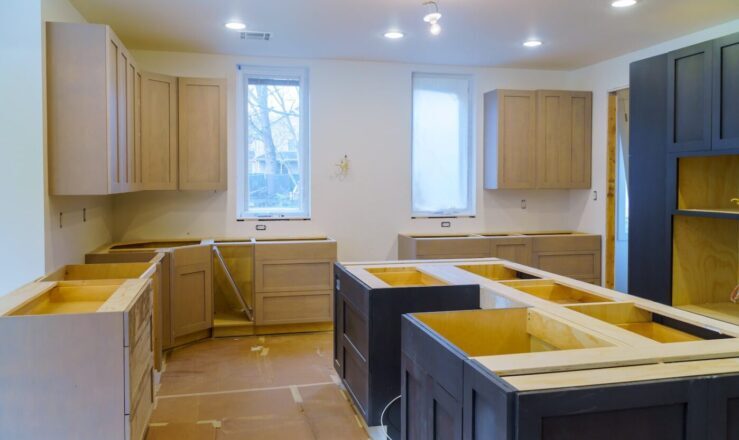
The duration largely depends on the scope and complexity of the project. A DIY renovation, especially for a first-timer, might take several weeks to a few months.
+In contrast, professionals, with their expertise and dedicated team, typically complete standard kitchen renovations in 4 to 6 weeks.
Are there any permits required for kitchen renovations?
Yes, depending on your local regulations and the scale of your renovation, permits might be necessary—especially if you’re making structural changes or altering plumbing and electrical systems.
Professionals usually handle permit acquisitions, while DIY enthusiasts need to research and obtain the necessary permits themselves.
How do I determine the best layout for my kitchen?
Start by analyzing your current kitchen’s pain points and consider the workflow. Many designers swear by the “kitchen work triangle” principle, which places the stove, refrigerator, and sink at triangle points for maximum efficiency.
If unsure, consulting with a kitchen designer, even if you’re going DIY, can offer valuable insights.
Can I do a partial DIY and also hire professionals for certain tasks?
Absolutely! Many homeowners opt for a hybrid approach, where they might handle tasks like painting or tiling but hire professionals for more complex jobs like plumbing or electrical work. This approach balances personal involvement with professional expertise.
What’s the most budget-friendly way to give my kitchen a fresh look without a complete overhaul?
For those looking for a cost-effective revamp, consider repainting cabinets, changing cabinet handles, updating light fixtures, or adding a backsplash. These minor changes can significantly transform the kitchen’s aesthetics without a complete renovation.
How do I ensure my renovated kitchen is energy-efficient?
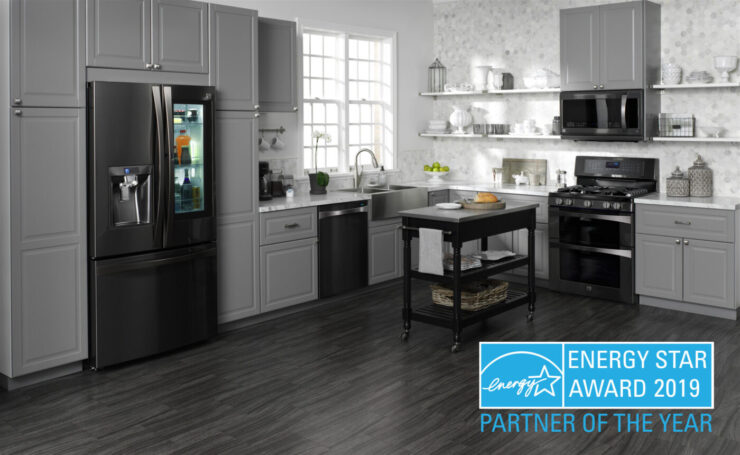
Focus on integrating ENERGY STAR certified appliances, use LED lighting, and consider materials that provide better insulation. If hiring professionals, express your desire for an energy-efficient kitchen, and they can guide you through the best choices.
Final Words
A kitchen renovation is a blend of art and science. While the DIY route offers unparalleled personal satisfaction and potential savings, it also comes with its set of challenges—from time investment to the steep learning curve.
On the flip side, hiring professionals might seem costlier initially, but the expertise, efficiency, and peace of mind they bring to the table are hard to quantify.
Your choice will ultimately hinge on your priorities, budget, and how hands-on you wish to be in the renovation process.
Whether you opt for DIY or hire a professional, remember: it’s not just about creating a visually pleasing space. It’s about crafting a kitchen that resonates with your lifestyle, a place where memories are brewed one meal at a time.
If you decide to do kitchen renovations yourself and would like a spark of luxury, read more about it in our article that will help you make your kitchen look and feel luxurious. Happy renovating!

